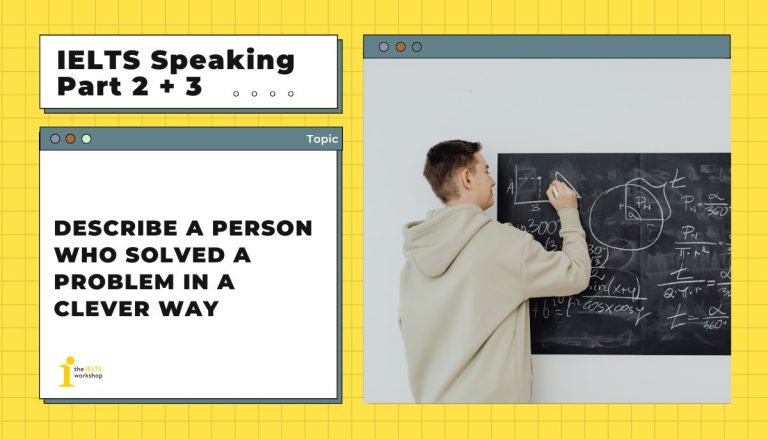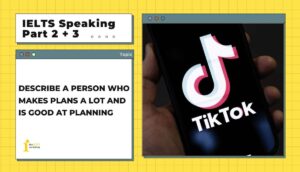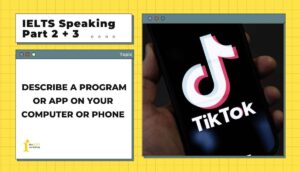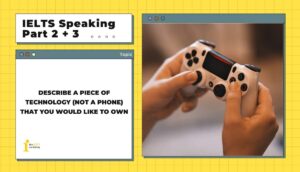Cùng The IELTS Workshop tham khảo cách giải đề IELTS Speaking Part 2 với chủ đề: “Describe a person who solved a problem in a clever way” qua bài mẫu của thầy Phước Đức. Cùng tham khảo sample, từ vựng và một vài cách diễn đạt ghi điểm trong phần thi IELTS Speaking nhé.
Part 2: Describe a person who solved a problem in a clever way
Describe a person who solved a problem in a clever way
You should say:
Who the person was
When you met the person
Where you met the person
And explain why you think he or she was clever.
Dưới đây là bài mẫu cho topic “Describe a person who solved a problem in a clever way“.
1. Bài mẫu (Sample)
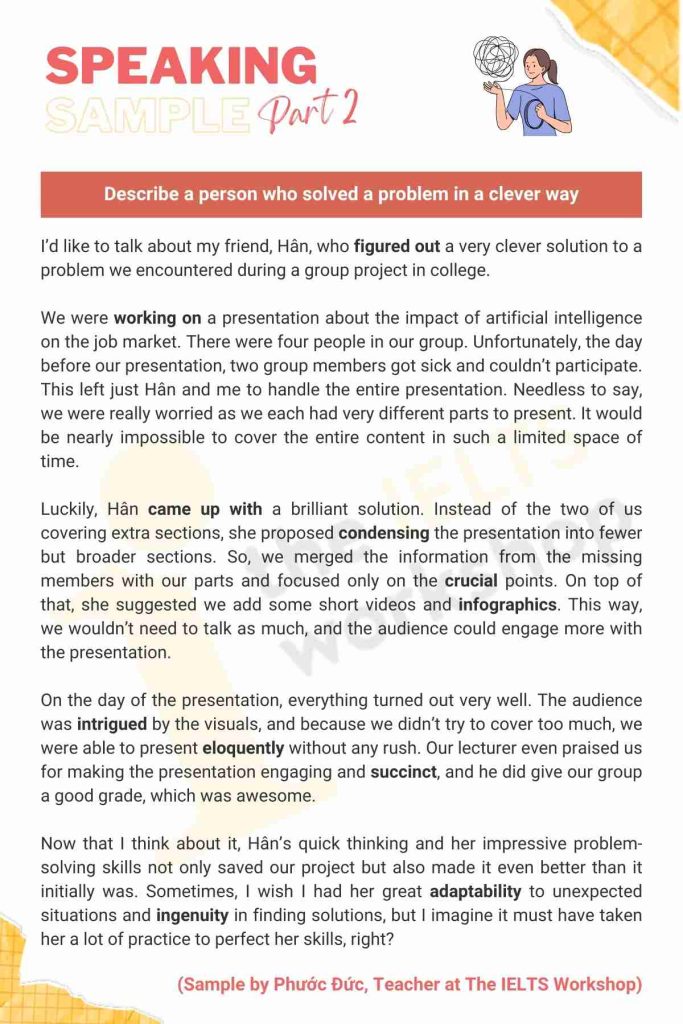
2. Từ vựng (Vocabulary)
- Figure out (phrasal verb): tìm ra, suy ra được
- Work on (phrasal verb): nỗ lực để cải thiện hoặc đạt được 1 thứ gì đó
- Come up with (phrasal verb): nảy ra (1 ý tưởng, 1 câu trả lời, v.v.)
- Condense (v): cô đọng
- Crucial (adj): extremely important (= critical = essential)
- Infographic (n): 1 bức hình hoặc sơ đồ được dùng để thể hiện hoặc giải thích thông tin hoặc dữ liệu
- Intrigued (adj): very interested in something/somebody
- Eloquently (adv): 1 cách hùng hồn
- Succinct (adj): ngắn gọn, xúc tích (= concise)
- Adaptability (n): khả năng thích ứng
- Ingenuity (n): tài khéo léo
Part 3
Bên cạnh Part 2, bạn hãy tham khảo thêm Part 3 cho chủ đề này nhé
Do you think children are born clever or they learn to become clever?
How do children become smart at school?
Why are some people well-rounded and others only good at one thing?
Why do you think it’s better to specialize in one subject or area?
1. Do you think children are born clever or they learn to become clever?
I think it’s a combination of both. Some children are innately intelligent, probably because they inherit it from their parents or relatives, or because they are prodigies, which is rare. On the other hand, I’m sure there are children who become smart through education. In fact, I believe most children are not prodigies and therefore develop their intelligence mainly through learning and studying.
- Innately (adv): bẩm sinh
- Prodigy (n): thiên tài, thần đồng
2. How do children become smart at school?
Well, I reckon that through various learning activities in class, children get to enhance their cognitive processes such as thinking, understanding, remembering, assessing and analyzing. With these mental activities strengthened, they should be able to become more acute and think more logically.
- Cognitive process (n): tiến trình nhận thức
- Acute (adj): nhạy bén
3. Why are some people well-rounded and others only good at one thing?
That’s quite a tricky question, isn’t it? Well, my guess is that some people are born as all-rounders, so they can effortlessly adopt or even master a variety of skills and abilities. In other cases, though, there are people who have to go through a lot of challenges before they become well-rounded. To be good at different things, you need to have an inquisitive mind, constantly show the will to step out of your comfort zone and stay persistent. On the other hand, it’s true that some people only excel in one area. In my opinion, many of those “masters of one” just haven’t tried their best to step out of their comfort zone and take on new challenges. If they do, they might realize that their talent isn’t necessarily restricted to the one thing they’re currently good at.
- All-rounder (n): người toàn diện
- Inquisitive (adj): ham học hỏi
- Step out of your comfort zone (idiom): bước ra khỏi vùng an toàn của bạn
- Persistent (adj): kiên trì và kiên định
4. Why do you think it’s better to specialize in one subject or area?
Personally, I think that specializing in one subject or area is advantageous because it allows you to become highly skilled and knowledgeable in that particular field. When you focus on one area, you can delve into the details and gain expertise that can make you stand out from others. Specialization also tends to be highly valued in many industries, as experts are often in demand for their specific skills and insights. Additionally, specializing can lead to more career opportunities, especially in fields like medicine, engineering, or law, where a high level of expertise is required.
- Delve into (phrasal verb): đào sâu, đi sâu vào
- Expertise (n): kiến thức chuyên môn
- Be in demand: được săn đón
Bài mẫu bởi thầy Phước Đức – Giáo viên The IELTS Workshop
Các bạn có thể tham khảo các Bộ đề dự đoán IELTS Speaking của The IELTS Workshop cũng như tham gia bài test trình độ tiếng Anh và nhận tư vấn lộ trình miễn phí tại đây!
Nếu bạn muốn nhận Mentor 1-1 để hoàn thiện kĩ năng Speaking của mình trước khi bước vào kỳ thi, tham khảo ngay Khóa bổ trợ từng kỹ năng IELTS của The IELTS Workshop.


